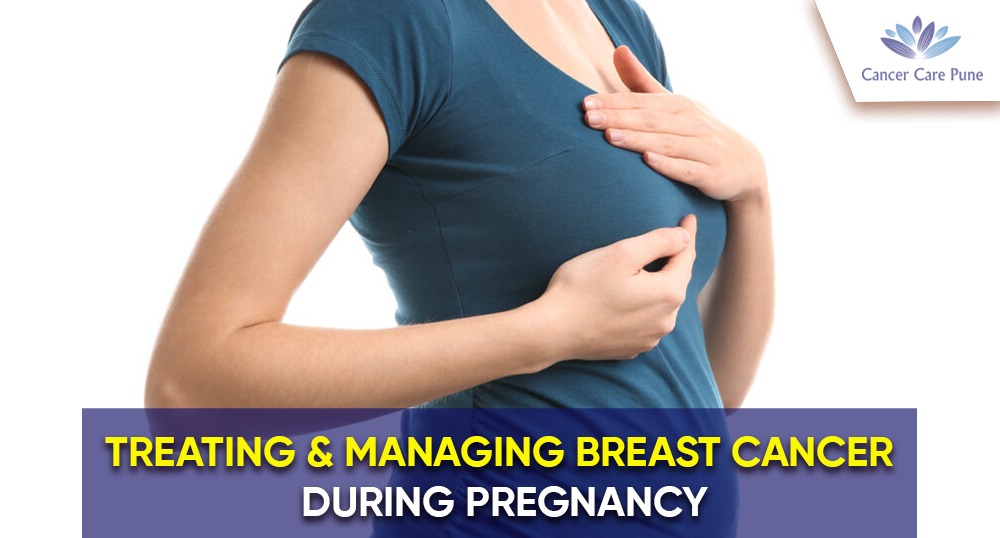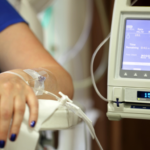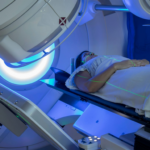
Overview
It’s uncommon to receive a breast cancer diagnosis while expecting a child. Approximately 1 in 1,000 to 1 in 10,000 pregnancies are thought to experience it.
Breast cancer discovered at any point during the pregnancy or in the first year following delivery is considered pregnancy-associated breast cancerTrusted Source.
Because more women are having children later in life, it’s probable that the prevalence of breast cancer during pregnancy has grown. With a woman’s age, her risk of having breast cancer increases.
Breast cancer is not brought on by pregnancy, but if you already have some, the hormonal changes of pregnancy may cause them to spread.
Learn more about breast cancer during pregnancy, treatment choices, and what to expect for you and your unborn child by reading on.
Pregnancy and breast cancer: Care that takes the health of the unborn child into account
Pregnancy makes it harder to detect and treat breast cancer. If at all feasible, the malignancy will be prevented from spreading while also safeguarding your baby’s health. To offer the greatest care for you and your unborn child, your cancer care team and your obstetrician will need to work together.
Although it has been discovered in the placenta, there are no recorded instances of breast cancer spreading to a fetus. None of the youngsters in a study trusted Source that followed them for more than 18 years after they were exposed to chemotherapy developed cancer or any other significant problems.
There may need to be a delay in some therapies till following the birth of the baby. The objective is to bring the pregnancy as close to term as feasible.
Reliable Source will get better by terminating the pregnancy. Both groups share the same general outlook when contrasted with women who aren’t pregnant and have comparable forms of breast cancer.
What breast cancer treatments are available when pregnant?
The extent of the malignancy will be a major factor in developing a treatment plan. Your physicians will think about:
Size and quantity of tumors
Tumor grade, which describes the specific form of breast cancer’s projected rate of growth and dissemination,
How far along in your pregnancy you are
Your general health personal preferences
Surgery
The first-line treatment even if you’re pregnant, surgery is an option for breast cancer. This could refer to mastectomy with lymph node removal or breast-conserving surgery (lumpectomy).
When a woman is pregnant, breast surgery for early-stage breast cancer is thought to be risk-free, though general anesthesia may bring some danger.
Chemotherapy
When the baby’s internal organs are growing during the first trimester of pregnancy, chemotherapy is typically avoided. Some chemotherapy medications are safer to use in the second and third trimesters of pregnancy, according to studies, although they are rarely administered during the last three weeks of pregnancy.
Depending on the type of breast cancer you have and how severe it is, chemotherapy may be used. Waiting till after delivery is an option in some circumstances.
Radiation
large amounts ofAny time during pregnancy that radiation is administered, the chance of injury to the unborn child increases. These dangers consist of:
Miscarriage
Slowly growing fetus
Natal malformations pediatric cancer
Radiation therapy is typically postponed until after the baby is born for this reason.
Hormonal and specific treatments
The use of hormone treatments and targeted therapies is not regarded as safe during pregnancy. This comprises:
Aromatase blockers
Bbevacizumab (Avastin) (Avastin)
Everolimus (Afinitor) (Afinitor)
Tamoxifen, trastuzumab, palbociclib, and lapatinib (Tykerb) (Herceptin)pregnancy and mastectomy
Whether you are pregnant or not, surgery is the main treatment for breast cancer.
Radiation therapy is administered in addition to lumpectomy, however, it must wait until after the baby is born. If radiation won’t be delayed for too long and you’re almost ready to give birth, this is an option.
Otherwise, a mastectomy is typically a preferable choice. The surgeon will examine the lymph nodes under your arm after a mastectomy to determine whether cancer has spread. In some cases, radioactive tracers and dye are used for this. Your doctor could advise against this depending on how far along you are in your pregnancy.
The baby may be in some danger from general anesthesia. Your obstetrician will collaborate with your anesthesiologist and surgeon.to choose the surgery’s safest timing and technique.
Nursing as a cancer treatment
Breastfeeding is still possible after a lumpectomy, but it may be challenging in that breast due to scar tissue and decreased milk volume. Not your other breast, either.
You can nurse from the unaffected breast after a single-side mastectomy.
Breast milk can transfer medications used in targeted therapy, hormone therapy, and chemotherapy to your infant.
Consult your obstetrician and oncologist to determine whether it is safe for you to breastfeed. A lactation consultant might be someone else you wish to contact.
Breast cancer prognosis during pregnancy:
For you and your family, finding out you have breast cancer while expecting can be stressful. Consider going to a therapist to assist you in navigating this trying period. To get started, check out these resources:
Inquire about recommendations for therapists and support groups from your doctor or the treatment facility.
If you have any questions about breastfeeding, get in touch with a board-certified lactation consultant.
For more on local support programs and services, get in touch with the Cancer Care team.




